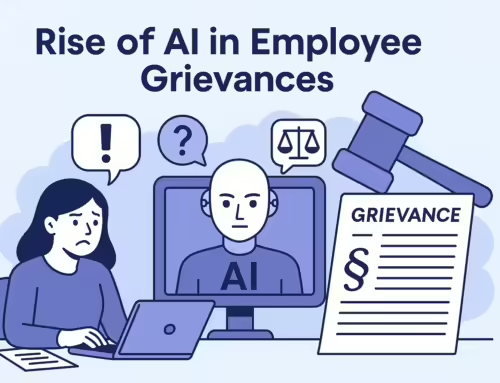Tips for handling disciplinary hearings
We’ve set out below some simple tips for Managers and Employers to follow should they need to hold a disciplinary hearing with a member of staff.
Tip 1 – get your facts straight
Before the hearing starts collect all your evidence together, take a photocopy of it and pass it to the employee (normally at least 48 hours in advance). This way it reminds the employee of your likely stance against them and gives you chance to review what you have collected.
Tip 2 – organise a note taker
We all know employees can invite a colleague or trade union representative to the meeting, but it’s always good practice to have your own independent note taker. It’s really hard to make notes, think of your next question and listen to what the employee is saying – so get an independent person (if you can) to come in and make notes.
Tip 3 – prepare your questions
Using the evidence you have collected – prepare your questions in advance – this way you can make sure the conversation stays on track and you get answers to the questions you need answering. Always use open questions at the start and use closed questions to confirm the information the employe provides. Good open questions start with “can you tell me…” or “can you explain to me”.
Tip 4 – paraphrase and get confirmation
In good communications – during the hearing after an employee has provided some information its useful to paraphrase what the employee has stated and then ask them to confirm if what you have said is true – e.g. “so, what you are saying is……….is this correct?”. This way you can get accurate statements of what the employee has said.
Tip 5 – stay in control
As the manager you have the right to undertake a fair disciplinary hearing – this means being polite and respectful but firm. If you feel the employee is bringing in irrelevant facts or information, stand firm and say “that’s interesting but not relevant to this matter, can you tell me….”. If you feel things are getting out of hand or heated, simply call a halt to the meeting, let things cool down and reconvene one hour later.
Tip 6 – let the employee know what happens next
When you have presented your evidence and the employee has responded to your questions you should always let the employee know what will happen next and when. So it’s normal to let an employee know the outcome of the hearing within 24 hours in writing, make sure the employe understands the time scale and how you’ll let them know – in writing or face to face.
Tip 7 – always be impartial
Never let the employee know the outcome of the hearing in the meeting – this could indicate you have prejudged the meeting. Always say if asked for an opinion from the employee “at this stage no decision has been made, and I’ll make my decision after all the evidence has seen and i have reviewed your answers to my questions”.
If you have good evidence, and well prepared questions disciplinary hearings can be quite straightforward. Always be polite, always be respectful, listen to the what the employee has to say and be firm in your approach.




